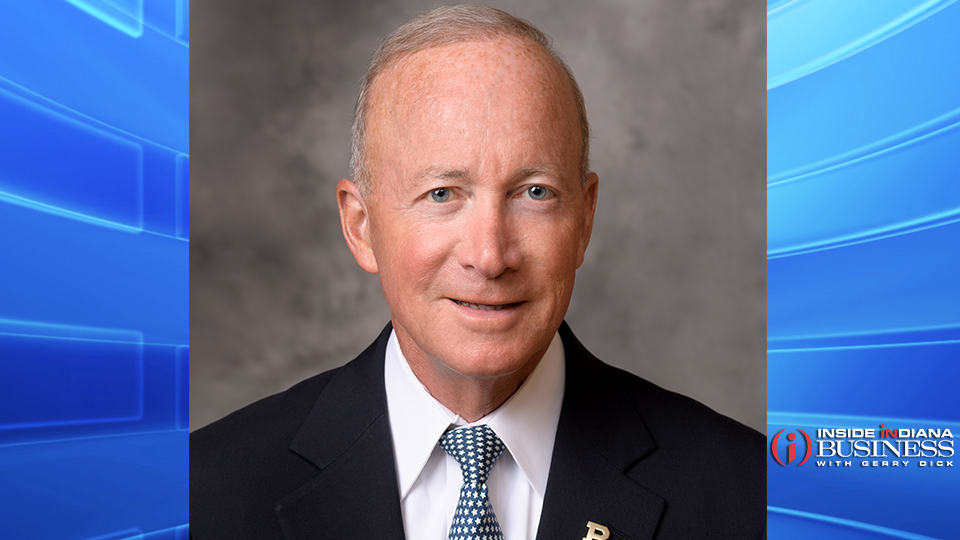It looks like pay-for-play in college sports is here to stay. Too bad.
Subscriber Benefit
As a subscriber you can listen to articles at work, in the car, or while you work out. Subscribe Now
The two arch-rivals had met during the regular season, Notre Dame coming away with a two-point overtime victory over Purdue. They collided again in the tournament’s final game, this time the Irish winding up on the short end of a 53-48 barnburner, and a new national basketball champion was crowned. The crowd of about 30 diehard fans erupted, their cheers echoing around the not-so-famed Highmark Center in Erie, Pa.
You didn’t see it on “SportsCenter” or anywhere else. It was the championship in late April of the National Club Basketball Association, an organization promoting a newly novel concept: college athletes, genuine student-athletes, playing a sport for the pure love of the game and the camaraderie of a team.
Unlike those “exploited” varsity players at Division I schools such as theirs, these players enjoy no free tuition, no special food or housing, no lavish practice facilities, and no personal trainers, nutritionists or psychologists. Any tutoring or academic coaching comes to their aid only if they take the initiative to seek it out.
They coach themselves, drive themselves to all away games, raise their own funds to hire officials and cover any other expenses.
But they can play ball. Every one was a high school starter, every one could play collegiately at some level, if basketball were their top priority. Among the club championship players, two plan to go to medical school. Another will be an engineer. One who’s headed to an IT job in Houston told me, “I ultimately passed up the chance to play small school basketball because education was the most important thing to me.”
Meeting these young men, and celebrating their success this spring, struck me as especially meaningful, given that it occurred at a time when college athletics are plunging down the bobsled run into full-blown professionalism.
In the past year, the agents, lawyers, politicians, sportswriters and would-be union organizers rooting for free-for-all player compensation have largely won the battle. They made a convincing case that athletes should be able to earn income from the fame their talents bring them, while elsewhere a court struck down prohibitions on direct payments to players by schools.
All agreed solemnly that it’s just about “fairness” and, mercy no, we can’t and won’t let this become a vehicle for recruiting, poaching or run-wild booster involvement.
Right. Before a single recruiting season has passed, big-money payments are everywhere, they are boastfully open, and apparently we are all to suddenly understand that this is just the way it is going to be.
There is a precedent for the world that many university athletic programs are now hurtling into. From 1947 to 1961, the National Basketball Association had a highly competitive rival league. The National Industrial Basketball League (NIBL) comprised teams sponsored by companies as a way to promote their names and reputations, an earlier version of the stadium and event sponsorships of today.
Teams such as the Peoria Caterpillar Diesels and Akron Goodyear Wingfoots contended with Milwaukee Allen-Bradley, the Denver Central Bankers, and some two dozen others over the 14 years before the league succumbed to the competition of a rising NBA.
My friend Bobby Plump, whose last-second, real-world jump shot in 1954 for Milan High School made the movie “Hoosiers” possible, compared an opportunity with the NBA’s Minneapolis Lakers with one from the Phillips 66ers of the NIBL and chose the latter. He led them to a league title and a lot of publicity for the company. Bobby and his teammates might have made an occasional public appearance on behalf of their firm, but their job was to play ball.
That may become the model for our brave new pay-to-play world; a top tier of young athletes will be handsomely compensated to boost the recognition of their sponsoring universities. Period. “Let’s welcome the Crimson Tide, sponsored by the University of Alabama!!”
Schools comfortable spending huge donations on recruiting the best players — funds that might have been used to strengthen their academic missions — will be free to do so. When that happens, they should drop any pretense that these are “students” and any requirement that anyone attend classes or pursue a degree. Offer education, as more and more employers now do, as an optional fringe benefit of the job.
Only a couple dozen sports factories will be able to compete successfully in the pay-to-play echelon. The rest will be left with a Hobson’s choice between permanent also-ran status and dropping down into a further segmentation of today’s system, hoping that they can still fill stadiums and negotiate TV contracts to watch actual students play. Meanwhile, they will be deciding which non-revenue sports to cut so athletic department budgets come close to balancing. Maybe they can expand club sports.
My guess — okay, hope — is that such an arrangement can work. Meanwhile, I’m sure the new league of sponsored professionals will be highly entertaining and a huge financial success. Just please don’t call it “college” sports.
This article first appeared in The Washington Post on May 26.
